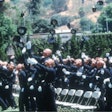If you do your job you will get plenty of complaints and only rarely receive compliments; these are the realities of policework. But how you handle or survive these unpleasantries of life is what is important here. There are a few pointers I can give you. Like them or not, these tips won't speed up the process, but they may help with your overall complaint survival.
Tell the Truth
One of life's lessons from childhood also holds true in investigations. If I ask you a question today and contact you again later with the same question, will I get the same truth? As I was taught as a young lad, "If you tell the truth the first time, then you never have to remember what you told."
In other words, don't get tripped up by a falsehood you forgot to cover. If you get nailed for lying on an official investigation, this will be the end of a career. If you know or feel that a complaint is coming from a call or contact, prepare now. If you wrote an accurate report with all of the facts, you should be solid. Have on hand all of the names, numbers, and other contact information for all possible witnesses, which includes officers.
Give your supervisor a head's up that something may be coming over the horizon. This prevents surprises and may give your supervisor an opportunity to do some damage control as well. Now, do not be a chicken little and scream "The sky is falling!" with every field contact. As you become seasoned you will get a feel for when and when not to be worried.
If you do have a good reason to expect a complaint over an incident, sit down and recall the entire event; then document all you observed, said, or did. It is not what you do that can get you into trouble, but whether you document why you did what you did.
There are two caveats to this statement. One is that if what you said was composed with improper or unprofessional language, there may be no excuse; accept what you get, for you said it. Remember, if you have the urge to tell someone off because it will make you feel good, then don't say it! Secondly, if you have acted in a professional manner and within all guidelines, any citizen abuse cannot be tolerated.
It's Business, Not Personal
Oftentimes, complaints are not centered around the officer but the circumstances. Somebody got arrested, got a ticket, or whatever. Despite all logic, the person wants to kill the messenger instead of dealing with the facts at hand: this person was criminally wrong. So, if such a person complains, it might just go away. Complaining without cause is an old trickery and still used frequently.
Do not become emotional and let this get you down. I have seen some younger officers go insane over their first complaint. If you did your job and followed your training and departmental guidelines, you should weather the storm. Don't let this ruin the rest of your personal life. Go out and continue with the routine. Get in your workouts and stay healthy. Don't get into some alcohol-fueled daze. Don't get in a rut, withdraw from your friends and colleagues, or become a troll. Your health and emotional support are paramount.
When it comes time to go to the commander or Internal Affairs, be professional. Follow the guidelines and know your rights as well. If I can only tell you this, be honest. I have seen some officers who were cleared or could have been cleared, but since they got caught up in a lie they reaped the penalties of giving false information or showing dishonesty during an official investigation. Don't set yourself up for this fall.
Like all the storms of life, a complaint will pass in time. The majority of the public and media will forget all about it and this too will pass. As my old sergeant told me, police complaints are like playing baseball. When it is all said and done, you will be sliding into home safe. The "powers that be" will attempt a pick-off play on some other poor guy trying to steal second base, and you will be called "safe." Just stay the course and be professional.














